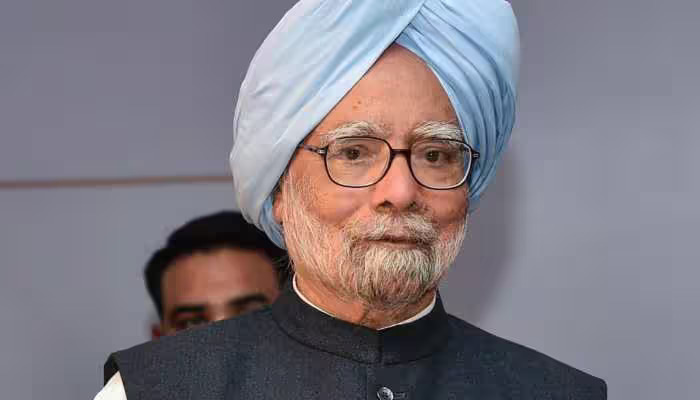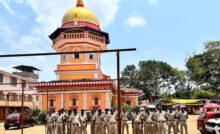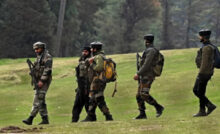Former PM Manmohan Singh Passes Away At 92


Former Prime Minister Dr.Manmohan Singh passed away on Thursday, December 26, after being admitted to AIIMS Delhi.


Manmohan Singh Death: Former Prime Minister Dr.Manmohan Singh was admitted to AIIMS in Delhi on Thursday evening after his health deteriorated. Following Singh’s death, Delhi unit of the Congress took to social media platform X and confirmed the news and called him an irreparable loss to Indian politics.
“The demise of renowned economist and former Prime Minister of the country, respected Manmohan Singh ji is an irreparable loss to Indian politics. May God give peace to the departed soul and strength to his family to bear this sorrow. The Delhi Congress family pays homage to the memories of respected Manmohan ji and expresses gratitude for his contribution to nation building. Om Shanti,” the grand old party wrote
The death of the former prime minister was announced by the All India Institute of Medical Sciences (AIIMS), Delhi, where he was admitted in the Emergency ward around 8.30 PM in a critical condition. An AIIMS bulletin said “he(Singh) was treated for age related medical conditions and had sudden loss of consciousness at home” on December 26.
Resuscitative measures were started immediately at home. He was brought to medical emergency at AIIMS Delhi at 8.06 pm. Despite all efforts, he could not be revived and was declared dead at 9.51 pm,” the bulletin said.
Described as a reluctant politician and an accidental prime minister, Singh, who headed the Congress-led UPA government for two terms from 2004 to 2014, had been in poor health for the last few months. He is survived by his wife Gursharan Kaur, a history professor, and three daughters.
Congress leader Priyanka Gandhi Vadra and her mother Sonia Gandhi reached the hospital as soon as the news of his hospitalisation became known. A seven-day national mourning will be observed and that Singh’s last rites will be conducted with full state honours.
Manmohan Singh’s Political Career
Singh, a renowned economist who was the finance minister under the then prime minister P V Narasimha Rao, was the architect and the brainchild of economic reforms in 1991 that pulled India from the brink of bankruptcy and ushered in an era of economic liberalisation that is widely believed to have changed the course of India’s economic trajectory.
Singh’s appointment as the finance minister was a turning point in the economic history of independent India which witnessed bold economic reforms, abolition of licence raj and opening of many sectors to private players and foreign players so that capital could flow in.
A former RBI governor, he is credited with allowing Foreign Direct Investment (FDI), rupee devaluation, moderation in taxes, and privatisation of public sector companies. Singh died as the Congress party concluded its Congress Working Committee(CWC) meeting at Belagavi in Karnataka, where all top party leaders were present.
The Indo-US nuclear agreement clinched in 2008 during Singh’s first term was a landmark that enhanced India’s global status. Singh stood firm on the nuclear deal which will remain a crowning glory of his prime ministership. The Left Front withdrew support to his government over the deal but the prime minister won the vote of confidence after the Samajwadi Party(SP) gave its backing.
Recent Posts
Stampede during festival at Goa temple leaves at least 6 dead, several injured
Goa Lairai Devi temple stampede: Among the injured, at least 10 people remain in critical condition…
Heavy rain, thunderstorms in Delhi bring respite from heat; IMD sounds alert, flight ops hit
Delhi NCR Weather Update | IMD Red Alert: The weather department had said that a fresh…
At least 14 dead in Kolkata hotel fire, SIT formed to probe cause
Kolkata Hotel Fire News: The fire broke out around 7:30 pm at the Rituraj Hotel,…
Pahalgam attack fallout: Pakistan violates ceasefire; India releases names of 14 ‘active terrorists’ in Kashmir | Full list
Indian soldiers inspect the site in the aftermath of an attack in Pahalgam, about 90kms (55…
Pahalgam guide became guardian angel for Chhattisgarh BJP worker: ‘Hugged the children, saved their lives’
When the attack took place on Tuesday, Agrawal (35) said other tourists pulled him to safety,…
Two terrorists killed in encounter in Baramulla’s Uri day after Pahalgam attack
Indian Army said the encounter broke out on Wednesday with approximately two-three terrorists attempting to infiltrate…


